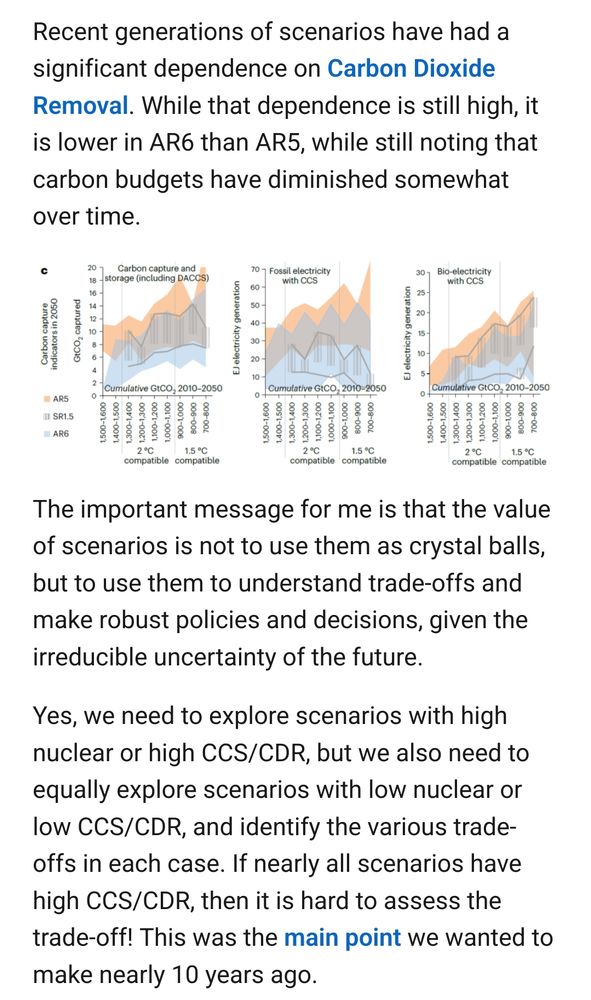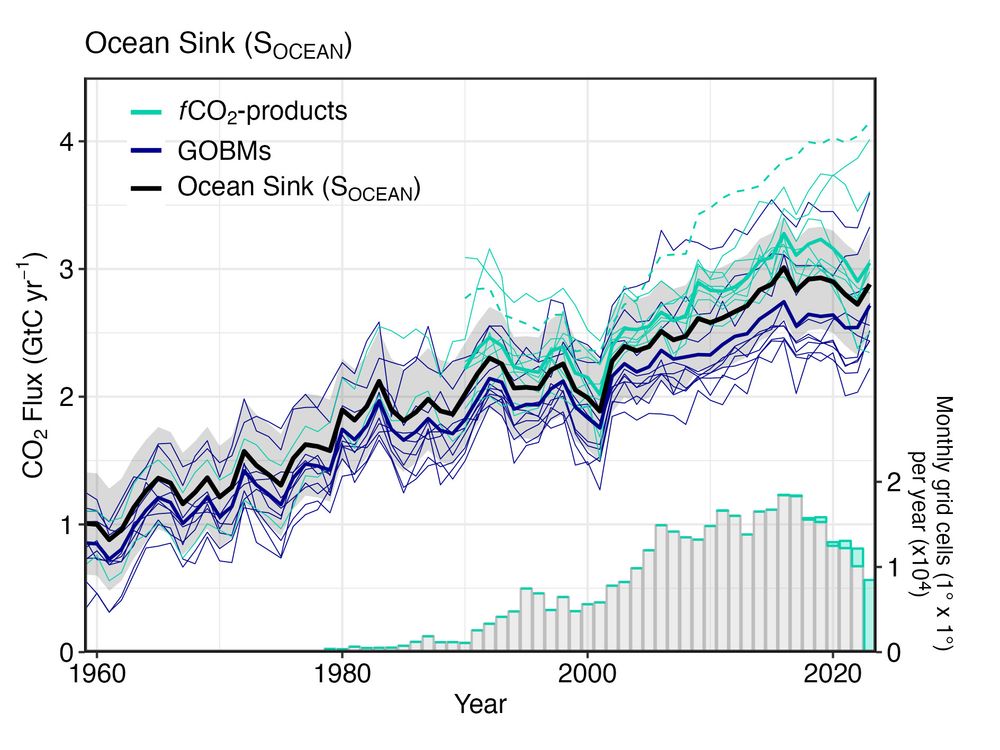
agupubs.onlinelibrary.wiley.com/doi/10.1029/...

agupubs.onlinelibrary.wiley.com/doi/10.1029/...
Los geht's ab eta 41:14 - die anderen Slams sind bestimmt auch gut ;)
www.youtube.com/watch?v=EyFl...
🌊🧪@awi.de


Los geht's ab eta 41:14 - die anderen Slams sind bestimmt auch gut ;)
www.youtube.com/watch?v=EyFl...
🌊🧪@awi.de
Morgen geht's in Bremerhaven weiter.

Morgen geht's in Bremerhaven weiter.
"Die Bremischen Wissenschaftseinrichtungen haben (...) eine Erklärung veröffentlicht, deren Titel gleichermaßen unser
unverrückbares Bekenntnis ist: Demokratie. Vielfalt. Weltoffenheit.
1/

"Die Bremischen Wissenschaftseinrichtungen haben (...) eine Erklärung veröffentlicht, deren Titel gleichermaßen unser
unverrückbares Bekenntnis ist: Demokratie. Vielfalt. Weltoffenheit.
1/
I often ready in 🌊 #mCDR papers: IPCC says we need #CDR to achieve our climate targets, as all scenarios that reach these goals include a certain level of CDR.
1/2

I often ready in 🌊 #mCDR papers: IPCC says we need #CDR to achieve our climate targets, as all scenarios that reach these goals include a certain level of CDR.
1/2
We have you covered, also for nitrogen.
5/5

We have you covered, also for nitrogen.
5/5
3/5

3/5
Klimawandel hat den entgegengesetzten Effekt.

Klimawandel hat den entgegengesetzten Effekt.
#biking

#biking
8/10

8/10
7/10

7/10
Often people think this is a warming effect, but changing wind patterns actually matter more ...
3/10

Often people think this is a warming effect, but changing wind patterns actually matter more ...
3/10
That's what is projected here.
2/10

That's what is projected here.
2/10
The #GlobalCarbonBudget 2024 confirms that the ocean sink increased in 2023 after 3 years of stagnation due to rare triple La Niña event. 2023 was an El Niño year, with an expected increase in the sink.
🔽
🌊 1/10

The #GlobalCarbonBudget 2024 confirms that the ocean sink increased in 2023 after 3 years of stagnation due to rare triple La Niña event. 2023 was an El Niño year, with an expected increase in the sink.
🔽
🌊 1/10
In the #RECCAP Southern Ocean chapter we looked at how the ocean bgc models reproduce recent temperature trends and thermal effects on air-sea CO2 fluxes and the forced ocean models do fine...

In the #RECCAP Southern Ocean chapter we looked at how the ocean bgc models reproduce recent temperature trends and thermal effects on air-sea CO2 fluxes and the forced ocean models do fine...

e.g.
"The seasonal amplitude of the CO2 flux is 50%–100% larger in the models at mid-latitudes (despite having a similar phasing, i.e., stronger sink in winter and spring)."
Knowing about the specific biases is necessary to improve them.

e.g.
"The seasonal amplitude of the CO2 flux is 50%–100% larger in the models at mid-latitudes (despite having a similar phasing, i.e., stronger sink in winter and spring)."
Knowing about the specific biases is necessary to improve them.
Carbon uptake and accumulation is largest in summer when mixed layers are shallow, thus allowing for more CO₂ uptake before alkalinity is lost to depth.
#seasonality #OAE 🌊
8/x

Carbon uptake and accumulation is largest in summer when mixed layers are shallow, thus allowing for more CO₂ uptake before alkalinity is lost to depth.
#seasonality #OAE 🌊
8/x
This shows that - relatively speaking- more carbon reaches the deep ocean when #OAE is applied in deep water formation regions.
I wonder: isn't this something useful? The signal is distributed over a larger volume and any associated risks are distributed and thus diluted more.
7/x 🌊

This shows that - relatively speaking- more carbon reaches the deep ocean when #OAE is applied in deep water formation regions.
I wonder: isn't this something useful? The signal is distributed over a larger volume and any associated risks are distributed and thus diluted more.
7/x 🌊
6/x

6/x
3/x 🌊

3/x 🌊
2/x

2/x
Julia Pongratz: A consistent budgeting of terrestrial carbon fluxes.
Eric Morgan on atmospheric potential oxygen.
Stephen Sitch giving a nice introduction to Trendy also for oceanographers :)


Julia Pongratz: A consistent budgeting of terrestrial carbon fluxes.
Eric Morgan on atmospheric potential oxygen.
Stephen Sitch giving a nice introduction to Trendy also for oceanographers :)



